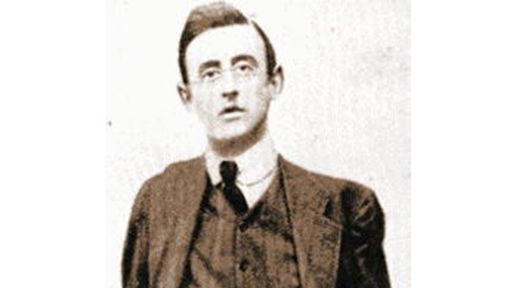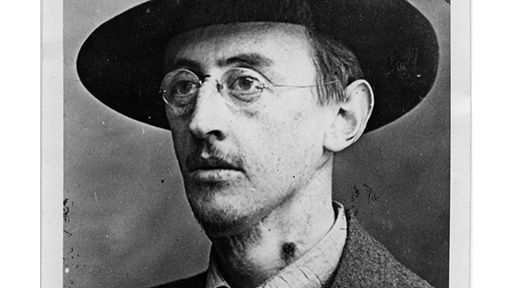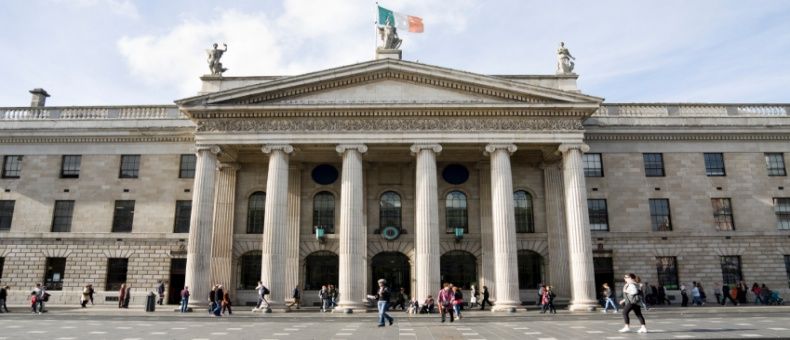
Life

Share
22nd March 2016
09:45am GMT

 1) He was born into wealth. Plunkett was born and raised on Fitzwilliam Street in Dublin, one of the city's most affluent areas. His father, George Noble Plunkett, was made a Papal Count - one of the highest honours that could be bestowed on prominent Catholics by the Pope.
2) Despite his moneyed upbringing, he did not have a happy childhood. Plunkett contracted tuberculosis as a small child and his health problems would follow him throughout his life. His issues were exacerbated by the fact that his mother denied his sickness, sending him to parts of the Mediterranean and North Africa for the warmer climate to make him better. It was no miracle cure, though.
3) He's rumoured to have been a roller-skating champion in Algeria. Plunkett was known to be a keen roller-skater, which was a massively popular pastime in Dublin a century ago. However, he took it a step further and is believed to have skated in Algiers in 1911 (while he was recuperating from another malady). Although there's no hard evidence that he won any competitions, the myth has grown ever since his prominent role in the events of Easter 1916.
1) He was born into wealth. Plunkett was born and raised on Fitzwilliam Street in Dublin, one of the city's most affluent areas. His father, George Noble Plunkett, was made a Papal Count - one of the highest honours that could be bestowed on prominent Catholics by the Pope.
2) Despite his moneyed upbringing, he did not have a happy childhood. Plunkett contracted tuberculosis as a small child and his health problems would follow him throughout his life. His issues were exacerbated by the fact that his mother denied his sickness, sending him to parts of the Mediterranean and North Africa for the warmer climate to make him better. It was no miracle cure, though.
3) He's rumoured to have been a roller-skating champion in Algeria. Plunkett was known to be a keen roller-skater, which was a massively popular pastime in Dublin a century ago. However, he took it a step further and is believed to have skated in Algiers in 1911 (while he was recuperating from another malady). Although there's no hard evidence that he won any competitions, the myth has grown ever since his prominent role in the events of Easter 1916.
 4) He was educated at the same school as James Joyce. Plunkett was educated by the Jesuits at Belvedere College on Great Denmark Street on Dublin's Northside, like James Joyce (with whom he shared a physical resemblance) a couple of years before him. He would later attend Stonyhurst College in Lancashire, where he would receive some military knowledge.
5) Like many of the signatories, he had a deep passion for language. Plunkett formed a lifelong friendship with his fellow signatory Thomas MacDonagh. They met at the Gaelic League, were both poets and had an interest in the theatre. They became early members of the Irish Volunteers, after which Plunkett managed to persuade other members of his family to join him in his nationalist cause - his brothers George and John, as well as his father George, who allowed a property he owned in Kimmage to be used as a training camp for men who wished to escape conscription in England during the first World War. They were, instead, trained to fight for Ireland.
6) His middle name. In Ireland in the early to mid 20th century it was not uncommon for both men and women to be given middle names more closely associated with the opposite sex. Mary, in particular, was a popular middle name for men.
7) He was central to the planning of the Rising. As a core member of the IRB Military Committee, Plunkett came up with the plan that the rest of the Rebels followed. He was stationed at the G.P.O. in Dublin alongside Patrick Pearse and Thomas Clarke, among many others.
4) He was educated at the same school as James Joyce. Plunkett was educated by the Jesuits at Belvedere College on Great Denmark Street on Dublin's Northside, like James Joyce (with whom he shared a physical resemblance) a couple of years before him. He would later attend Stonyhurst College in Lancashire, where he would receive some military knowledge.
5) Like many of the signatories, he had a deep passion for language. Plunkett formed a lifelong friendship with his fellow signatory Thomas MacDonagh. They met at the Gaelic League, were both poets and had an interest in the theatre. They became early members of the Irish Volunteers, after which Plunkett managed to persuade other members of his family to join him in his nationalist cause - his brothers George and John, as well as his father George, who allowed a property he owned in Kimmage to be used as a training camp for men who wished to escape conscription in England during the first World War. They were, instead, trained to fight for Ireland.
6) His middle name. In Ireland in the early to mid 20th century it was not uncommon for both men and women to be given middle names more closely associated with the opposite sex. Mary, in particular, was a popular middle name for men.
7) He was central to the planning of the Rising. As a core member of the IRB Military Committee, Plunkett came up with the plan that the rest of the Rebels followed. He was stationed at the G.P.O. in Dublin alongside Patrick Pearse and Thomas Clarke, among many others.
 8) He almost didn't take any part at all in the rebellion. Plunkett became seriously ill in the weeks leading up to the events of Easter 1916, and had to have an operation on his neck glands as the rebellion approached. He struggled out of bed and made it to O'Connell Street, but he was not as active in proceedings as he had hoped to be.
9) His aide de camp was Michael Collins. Collins had been working as a financial advisor to Plunkett's father, and took part in drilling troops and preparing arms for the Rising. During the rebellion, Collins was at Plunkett's side in the GPO. Collins was 25 at the time.
10) Plunkett married Grace Gifford just hours before his execution. When Gifford, a Protestant who had converted to Catholicism, found out that Plunkett was to be shot on 4 May, 1916, she bought a ring in a jeweller's shop in Dublin city centre.
With the help of a priest, she persuaded the military authorities to allow them to marry at Kilmainham Gaol, just hours before Plunkett would face the firing squad.
https://www.youtube.com/watch?v=NB_8eQFghZg&app=desktop
Minecraft Project by CBS Primary Mitchelstown, based on the poem "Grace", written by Joseph Mary Plunkett to his fiancée before he was executed. Sung by pupils from the school.
Previously in this series
James Connolly
8) He almost didn't take any part at all in the rebellion. Plunkett became seriously ill in the weeks leading up to the events of Easter 1916, and had to have an operation on his neck glands as the rebellion approached. He struggled out of bed and made it to O'Connell Street, but he was not as active in proceedings as he had hoped to be.
9) His aide de camp was Michael Collins. Collins had been working as a financial advisor to Plunkett's father, and took part in drilling troops and preparing arms for the Rising. During the rebellion, Collins was at Plunkett's side in the GPO. Collins was 25 at the time.
10) Plunkett married Grace Gifford just hours before his execution. When Gifford, a Protestant who had converted to Catholicism, found out that Plunkett was to be shot on 4 May, 1916, she bought a ring in a jeweller's shop in Dublin city centre.
With the help of a priest, she persuaded the military authorities to allow them to marry at Kilmainham Gaol, just hours before Plunkett would face the firing squad.
https://www.youtube.com/watch?v=NB_8eQFghZg&app=desktop
Minecraft Project by CBS Primary Mitchelstown, based on the poem "Grace", written by Joseph Mary Plunkett to his fiancée before he was executed. Sung by pupils from the school.
Previously in this series
James ConnollyExplore more on these topics:

JOE.ie - Life | Joe.ie
life style